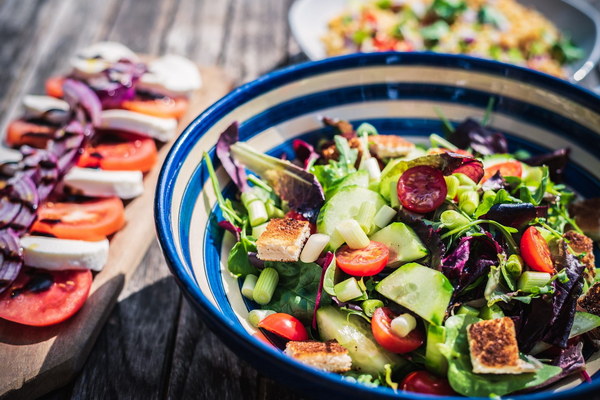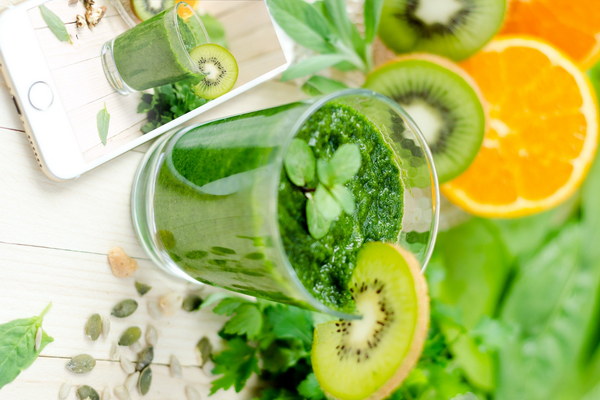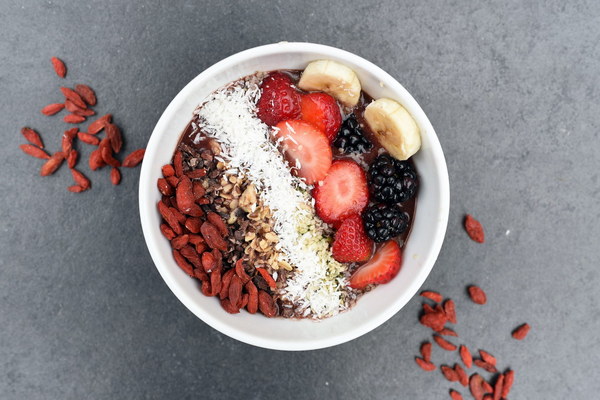Unveiling the Gastrointestinal Wonders The Nutritional Benefits of Jujube for a Healthy Stomach
In the realm of traditional Chinese medicine, the jujube, commonly known as the red date or Chinese date, holds a significant place as a natural remedy for various ailments, especially those related to the gastrointestinal system. This small, sweet fruit, with its numerous health benefits, has been a staple in Chinese cuisine and medicine for centuries. Let's delve into the nutritional composition of jujube and explore how it can benefit your stomach health.
The nutritional profile of jujube is impressive, making it a powerhouse of essential nutrients. Here's a breakdown of the key components that contribute to its stomach-soothing properties:
1. Dietary Fiber: A single jujube contains approximately 3.7 grams of dietary fiber, which is crucial for maintaining a healthy digestive system. Fiber helps to add bulk to the stool, making it easier to pass and reducing the risk of constipation. It also slows down digestion, ensuring that nutrients are absorbed properly and preventing bloating and gas.
2. Vitamins and Minerals: Jujube is rich in essential vitamins and minerals, including vitamin A, vitamin C, calcium, potassium, and iron. Vitamin A is vital for maintaining healthy skin and mucus membranes, while vitamin C acts as a powerful antioxidant, protecting the body from oxidative stress. Calcium and potassium contribute to muscle function and nerve transmission, and iron helps in the formation of red blood cells, which are essential for oxygen transport throughout the body.
3. Flavonoids: Jujube is loaded with flavonoids, which are natural compounds that have anti-inflammatory, antioxidant, and antimicrobial properties. These compounds can help reduce inflammation in the stomach lining, alleviate symptoms of gastritis, and protect against stomach ulcers.
4. Tannins: Tannins present in jujube have astringent properties that can help to soothe and heal the stomach lining. They can also reduce the production of excess stomach acid, which is often responsible for heartburn, indigestion, and acid reflux.
5. Saponins: Saponins in jujube have been found to have anti-inflammatory, antimicrobial, and antioxidant effects. They can help to regulate the immune system, reducing the risk of infections and promoting overall gastrointestinal health.
To harness the stomach-soothing benefits of jujube, there are various ways to incorporate this superfruit into your diet:
1. Fresh Jujube: Consume fresh jujubes as a healthy snack or add them to salads, smoothies, or oatmeal. The natural sweetness of jujubes adds a delightful taste without the need for added sugars.

2. Dried Jujube: Dried jujubes are also available and can be used in a variety of recipes, such as soups, stews, and desserts. They can be rehydrated by soaking in water before use.
3. Jujube Tea: Prepare a soothing cup of jujube tea by boiling dried jujubes in water. This tea is known for its calming properties and can help with digestion and stress relief.
4. Jujube Extract: If fresh or dried jujubes are not readily available, jujube extract is a convenient alternative. This supplement can be found in capsule or liquid form and offers the same health benefits as the fruit itself.
In conclusion, the nutritional composition of jujube makes it an excellent choice for maintaining a healthy stomach. Its high fiber content, vitamins, minerals, flavonoids, tannins, and saponins all work together to promote gastrointestinal health, reduce inflammation, and protect against stomach ulcers. Incorporating jujube into your diet can help you enjoy a happier and healthier digestive system.









